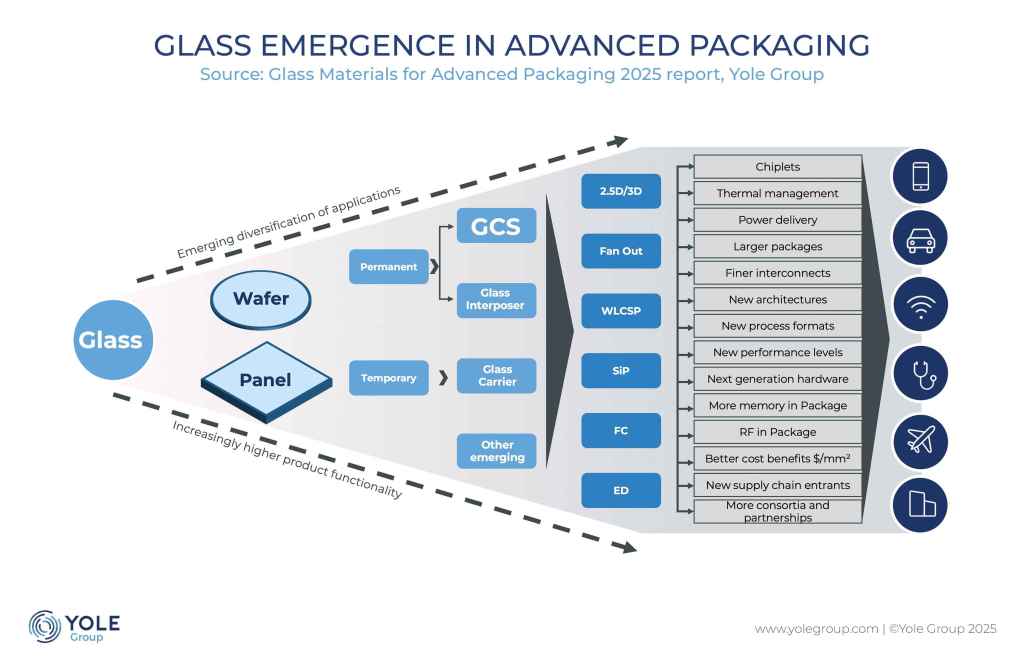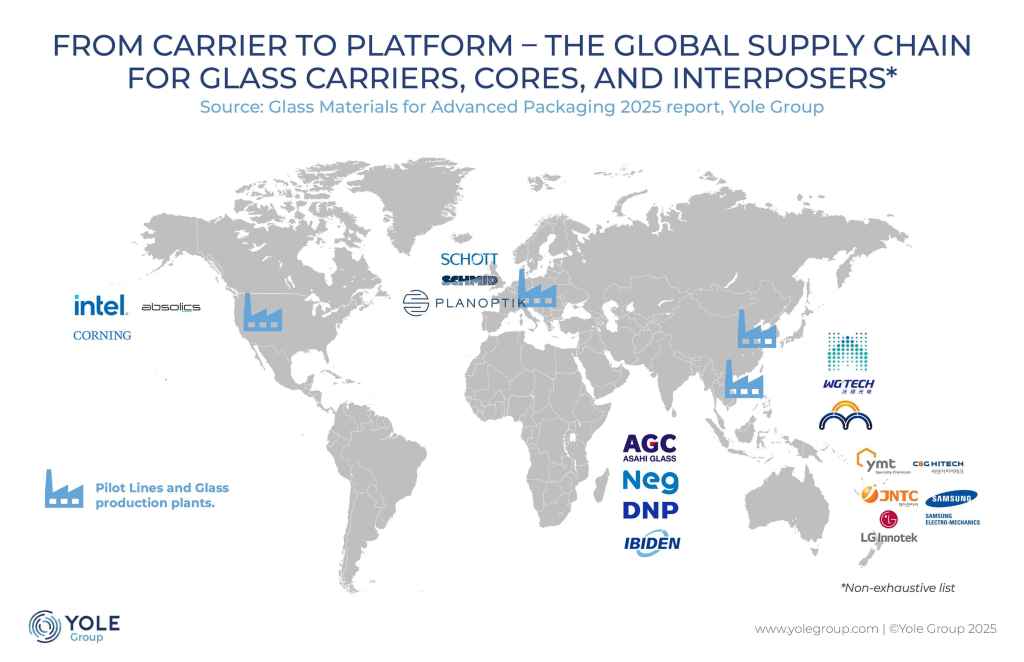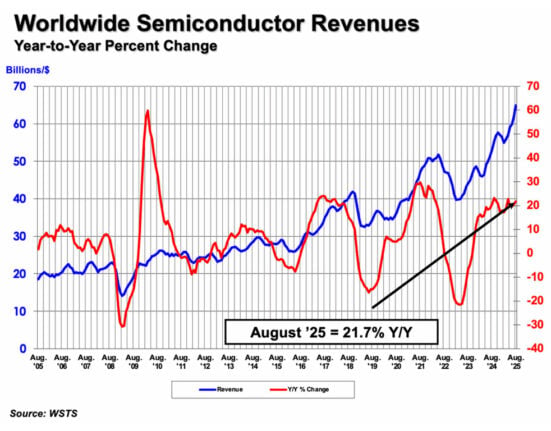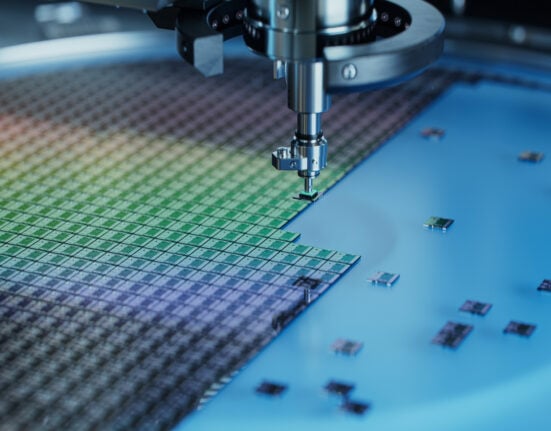As semiconductor chip architectures become more complex and performance-driven, the materials enabling advanced packaging are evolving just as fast.
Yole Group’s new report, Glass Materials for Advanced Packaging 2025, provides the first in-depth analysis dedicated to the fast-growing glass materials market across multiple packaging platforms, including glass core substrates, glass interposers, glass carriers, TGVs, and glass-based emerging technologies. This comprehensive report delivers a complete picture of market dynamics, technology evolution, and supply chain strategies shaping glass adoption in advanced packaging.
Yole Group’s analysts examine the market trends and drivers for each major application, along with forecasts for production volumes, panel production, and revenues. They also detailed technology roadmaps describing key processes and key manufacturing challenges, the different approaches at each process step, as well as the developing ecosystem in each region. Moreover, Yole Group provides an overview of the supply chain, identifying the key players, their positioning, and collaborations, and a description of the regional ecosystems in China, Korea, and Japan, highlighting local innovation and strategic capabilities.
Glass materials are now entering a high-growth phase, driven by need and demand from data centres, telecommunications, and AI/HPC applications. In data centres, glass guarantees the critical packaging vectors for chiplet fabrics and optical I/O, while in telecommunications, low-loss glass stacks are reshaping 5G/6G RF front ends by reducing size, improving thermal behaviour, and enabling higher frequencies.
The report also highlights how panel-based glass interposers and carriers are becoming essential to large-area packaging and co-packaged optics, as system designers push beyond the limits of traditional silicon and organic substrates.
Key results and industry megatrends
Yole Group’s latest analysis reveals that glass materials are now positioned at the core of the semiconductor packaging revolution, fuelled by megatrends such as AI, HPC, 5G/6G connectivity, and co-packaged optics. Analysts highlight that glass’s unique properties, including low CTE, superior dimensional stability, and optical transparency, make it indispensable for meeting the mechanical, electrical, and thermal demands of next-generation packaging.
According to Yole Group, data centres and telecommunications are the main growth engines driving the adoption of glass in packaging, with additional momentum coming from automotive, defence, and premium consumer electronics. These sectors increasingly rely on chiplet integration, hybrid bonding, and panel-level manufacturing, where glass provides both performance gains and cost advantages. The analysis also identifies the emergence of new supply chains in Asia, especially in China, Korea, and Japan, as critical factors in scaling production and strengthening the global glass ecosystem for advanced packaging.
Bilal Hachemi, Senior Technology & Market Analyst, Semiconductor Packaging at Yole Group said: “Glass has quietly moved from a supporting role to a central enabler in advanced packaging. Its mechanical stability, optical transparency, and low coefficient of thermal expansion make it ideal for high-density, high-performance integration, exactly what AI, data centre, and 5G applications now demand.”
















